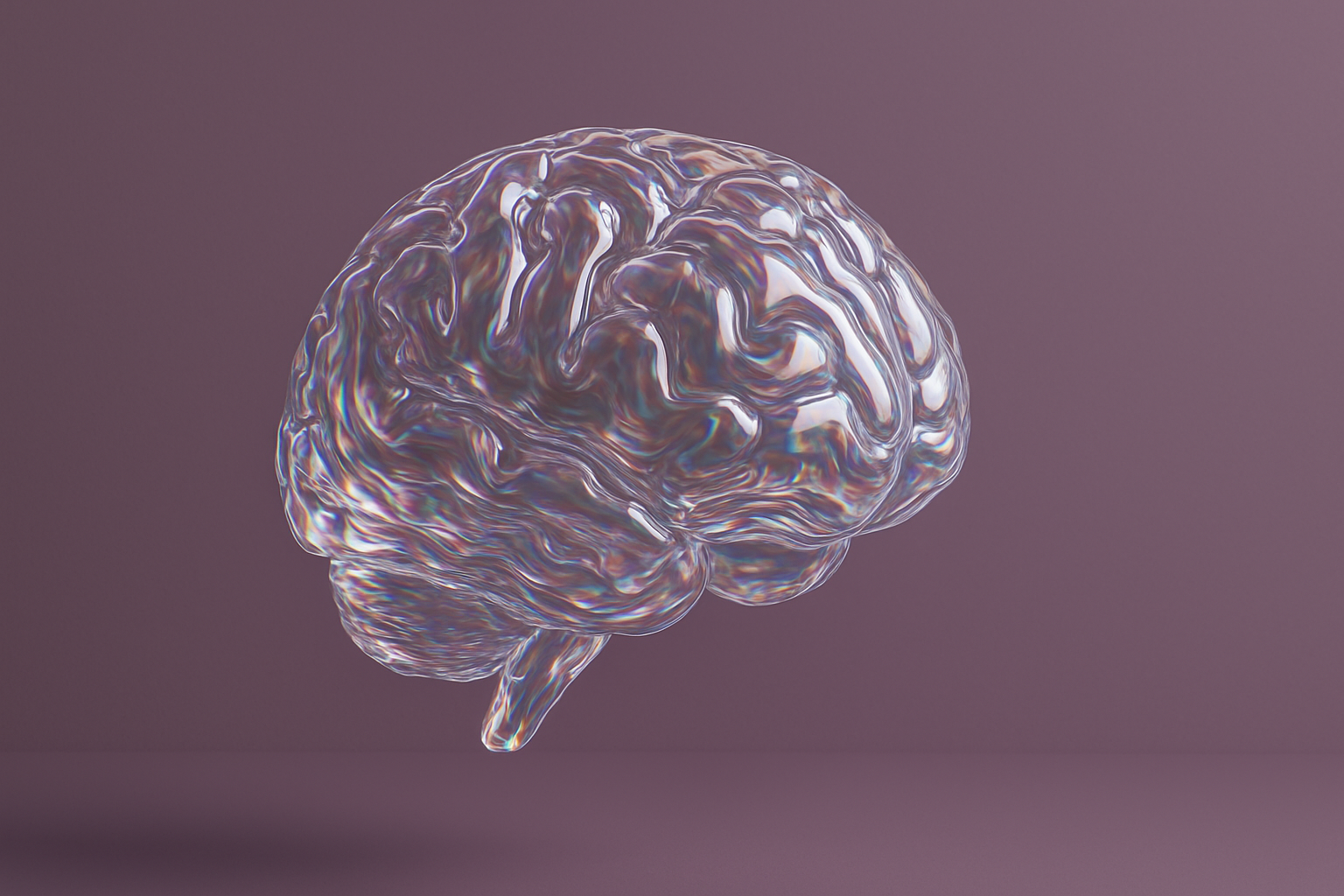Most users abandon meal tracking within days due to tedious data entry and unclear insights. Advances in AI are fundamentally transforming nutrition tracking and personalized health.
It isn't science fiction—it's happening right now, with artificial intelligence creating personalized nutrition paths as unique as your fingerprint. Nutrition tracking has transformed dramatically over the years, evolving from basic paper methods to sophisticated AI-powered systems that understand our individual needs.
Digital apps like MyFitnessPal marked the first real improvement, digitizing food logging and expanding nutritional databases. Then came wearables that tracked your steps, sleep, and heart rate automatically.
AI Innovations That Make Nutrition Tracking Effortless and Insightful
The integration of artificial intelligence and advanced AI analytics has transformed nutrition tracking from a tedious chore into an intuitive, personalized experience that provides valuable insights with minimal effort.
Instant Meal Analysis: AI-Powered Food Recognition and Portion Estimation
With AI-driven image recognition, users can capture meal photos to automatically log ingredients and portion sizes. Apps like Calorie Mama AI and Foodvisor recognize multiple foods in one image and calculate their nutritional value instantly.
A particularly noteworthy capability of these systems lies in their estimation of portion sizes, an area where human accuracy is often limited. This functionality mitigates the need for subjective approximations of standard serving sizes, such as determining what constitutes "one serving" of pasta.
Wearable Devices Creating Complete Health Pictures Through Connected Data
The true synergy emerges when these various devices begin to communicate and exchange data. Consider that your smartwatch, continuous glucose monitor, and fitness tracker can now create a complete picture of your health. For people with diabetes, systems like Nutrino (now part of Medtronic) show exactly how specific foods affect their blood sugar. This feedback loop enables dynamic, physiology-driven nutrition adjustments in real time.
Predictive Food Analytics That Forecast Your Personal Response
AI moves beyond simply tracking past food intake to predicting future physiological responses to new foods. Companies like DayTwo analyze your microbiome to forecast how your body will respond to specific meals, leveraging predictive and management of health trends.
Instead of trial and error, you can know in advance how your body might react to that burrito or smoothie. These systems remember your preferences, allergies, health goals, and even genetic factors, creating meal plans that are both healthy and enjoyable.
Personalized Health through AI
Personalization is the cornerstone of modern nutrition science, and AI is a game-changer in healthcare, making truly individualized health guidance accessible at scale for the first time in history, similar to its impacts in AI in pharma.
Nutritional Plans Precisely Engineered for Your Unique Biology
Individual variations in metabolism mean that dietary strategies effective for one person may not translate to another.
By combining microbiome analysis, blood fat responses, and glucose monitoring, these platforms are enhancing accuracy and personalization in creating food recommendations uniquely tailored to you. This precision matters because traditional dietary guidelines fail many people. Two individuals can eat identical meals and have completely different metabolic responses—a reality that generic nutrition advice simply can't address.
This level of personalization is also seen in AI in genomics, where genetic information guides healthcare decisions.
Revolutionary Support for People Managing Chronic Health Conditions
For people managing conditions like diabetes or heart disease, AI has become an indispensable ally. Solutions today can predict blood glucose trends and suggest preventive measures before problems occur.
The psychological relief this provides cannot be overstated. Instead of constant anxiety about possible health complications, users gain a sense of control in managing their condition. It's not just about better numbers—it's about better quality of life.
Uncovering Hidden Connections Between Food Choices and Emotional Wellbeing
The connection between what we eat and how we feel is now enhanced by AI. Apps like Moodable track both what you eat and how you feel, uncovering patterns most of us would never notice on our own.
AI can identify patterns between food intake and emotional states, helping us make choices that support both physical and emotional well-being.
Case Studies and Real-World Applications
Real-world implementations of AI in nutrition demonstrate both the current capabilities and future potential of these technologies across diverse populations and health needs.
Nourish Combines AI Analysis with Human Nutritionist Expertise
Nourish represents a hybrid approach: AI analysis paired with human dietitians. The AI spots patterns a human might miss, while the dietitian provides the judgment and empathy that technology can't.
HealthifyMe Delivers Culturally Relevant Nutrition AI to Millions
With over 25 million users, India's HealthifyMe proves AI nutrition guidance can work at massive scale. Their AI assistant Ria offers advice based on local cuisines—crucial for cultural relevance.
What makes HealthifyMe effective is how it adapts to regional eating patterns, providing practical advice that respects cultural traditions while supporting health goals. Additionally, other apps have begun integrating innovative features like AI-powered voice logging, further simplifying the tracking process.
NutrifyAI Emphasizes Nutritional Quality Beyond Calorie Counting
NutrifyAI focuses on nutritional density rather than just counting calories. Their smartphone-based food detection helps users concentrate on vitamin and mineral intake—the nutrients most of us overlook.
The app learns your preferences and gradually steers you toward better choices without forcing dramatic diet changes. The AI system progressively guides healthier choices through personalized, non-intrusive recommendations.
MyFitnessPal Enhances User Experience with AI-Powered Features
MyFitnessPal, a leading nutrition tracking app, partnered with Tribe AI to integrate AI and improve user engagement. Tribe AI helped them develop two key features: AI-powered voice logging for effortless meal tracking and a personalized recipe recommendation chatbot.
These features, built using AWS Bedrock and Anthropic Claude 2, leverage MyFitnessPal's extensive food database to provide tailored and convenient experiences. The voice logging feature allows users to log meals conversationally, while the chatbot offers recipe suggestions based on individual preferences and dietary needs. This demonstrates how AI can transform nutrition tracking into a more intuitive and personalized process.
Benefits of AI in Nutrition and Health
The application of artificial intelligence to nutrition and health brings numerous advantages that extend far beyond simple convenience, including cutting costs and streamlining operations, creating fundamentally better health outcomes through enhanced precision and personalization.
Superior Accuracy That Outperforms Human Estimation
Humans are terrible at estimating portion sizes— nutritionists often miscalculate by 20% or more. AI image recognition has reached accuracy rates above 90% for common foods, drastically outperforming our eyeball estimates.
This accuracy creates a virtuous cycle: better data in means better recommendations out, which leads to better results and continued use. It transforms nutrition tracking from a frustrating guessing game to a reliable tool.
Captivating User Experience That Keeps People Engaged
Historically, diet tracking was perceived as a burdensome, error-prone task. AI transforms it into something more engaging, with conversational interfaces, personalized insights, and subtle gamification.
A study on the AI-based PROTEIN app found that features like perceived usefulness, ease of use, novelty, and personalization positively influenced users' attitudes and intentions to use the app, leading to behavior change. These factors contribute to sustained user engagement.
Mass Personalization That Democratizes Nutritional Expertise
The limited availability of human nutritionists to provide individualized guidance necessitates alternative solutions. Artificial intelligence effectively addresses this gap by offering scalable, quality nutritional advice to a vast number of individuals concurrently.
These systems improve as more people use them, creating a network effect that enhances recommendations for everyone. Your data helps the system get smarter for all users, while you benefit from the collective insights of thousands of others with similar profiles.
Adaptive Learning Systems That Evolve With Your Body
Unlike static diet books that remain unchanged for years, AI systems learn from your results. They refine recommendations based on what actually works for you, creating a nutrition plan that evolves as your body and lifestyle change.
An adaptive AI nutrition guide continuously refines recommendations based on evolving user data and lifestyle changes.
Challenges of AI in Nutrition
Despite its tremendous potential, AI-powered nutrition faces several significant hurdles that must be addressed to ensure these technologies deliver on their promise of better health for everyone.
Protecting Sensitive Health Information in an AI Environment
Your health data is deeply personal. Companies must navigate HIPAA, GDPR, and emerging AI regulations, focusing on keeping data secure and staying compliant, while maintaining your trust.
A Rock Health survey found that a lot of people worry about sharing health data with AI systems—a concern the industry must address. The most successful platforms will be those that provide transparent data policies and give users control over their information.
Expanding AI Nutrition Benefits Beyond Tech Savvy Users
A key challenge is ensuring equitable access, as not everyone has the necessary smartphones, internet, or technical skills. Additionally, subscription fees for advanced platforms can exclude those who need them most.
This creates a risk of widening health disparities rather than narrowing them. The industry must consider how to make these powerful tools available to diverse populations with varying resources and technical abilities.
Validating Nutritional Recommendations for Scientific Soundness
Despite impressive advances, many AI nutrition platforms haven't undergone rigorous scientific testing.
The "black box" nature of complex algorithms also raises questions—if we can't see how recommendations are generated, how can we fully trust them? This highlights the importance of transparency and the need for continued validation of AI-generated advice.
Shaping the Future of Nutrition with AI
AI is opening new doors in nutrition science, enabling personalized, data-driven insights that were once impossible. From real-time tracking to integrating genetic and biometric data, the future of nutrition is intelligent, adaptive, and deeply personal. But the real power lies in combining AI’s analytical capabilities with human expertise to guide meaningful change.
Tribe AI helps organizations turn this vision into reality. Whether you're developing next-generation nutrition platforms or enhancing existing systems, our expert network delivers tailored strategies and scalable AI solutions that align with your goals.
Ready to innovate in AI-powered nutrition? Partner with Tribe AI to build smarter, more personalized health experiences.
FAQs
1. How accurate are AI-powered food recognition apps for tracking meals?
AI food recognition apps, such as Calorie Mama and SnapCalorie, utilize advanced image recognition technology to identify food items and estimate portion sizes. While these apps offer convenience and can achieve accuracy rates above 90% for common foods, their performance may vary with complex or mixed dishes. For instance, they might struggle with identifying composite meals like spaghetti bolognese or hamburgers unless the user provides additional context or information.
2. Can AI nutrition apps help with chronic disease management?
Yes, AI-driven nutrition apps are increasingly being used to support individuals managing chronic conditions such as diabetes and heart disease. These apps can analyze personal health data, including glucose levels and dietary intake, to provide tailored recommendations that help users make informed dietary choices, potentially improving health outcomes and quality of life.
3. Are AI nutrition apps suitable for people with dietary restrictions or allergies?
Many AI nutrition apps are designed to accommodate users with specific dietary needs, including those with allergies or intolerances. By inputting personal health information and dietary preferences, users can receive customized meal suggestions that align with their restrictions, promoting safer and more personalized nutrition planning .
4. Do AI nutrition apps consider cultural food preferences?
Some AI nutrition platforms, like HealthifyMe, have integrated cultural considerations into their algorithms. HealthifyMe's AI assistant, Ria, offers personalized diet plans that incorporate regional cuisines, ensuring that dietary recommendations are both culturally relevant and health-conscious . However, the effectiveness of cultural adaptation may vary across different apps, and users should assess whether an app aligns with their cultural dietary practices.
5. What are the privacy implications of using AI nutrition apps?
Using AI nutrition apps involves sharing personal health data, which raises privacy concerns. It's essential to choose apps that comply with data protection regulations such as GDPR or HIPAA and to review their privacy policies to understand how your data will be used and protected. Some platforms offer features like role-based access controls and end-to-end encryption to safeguard user information









.jpeg)



